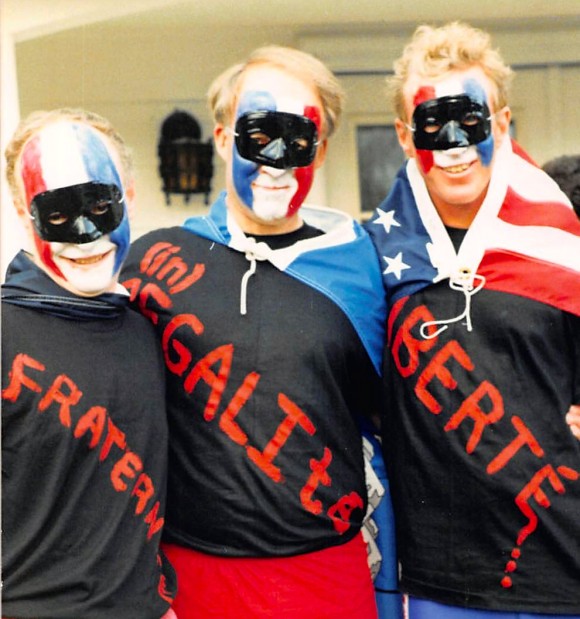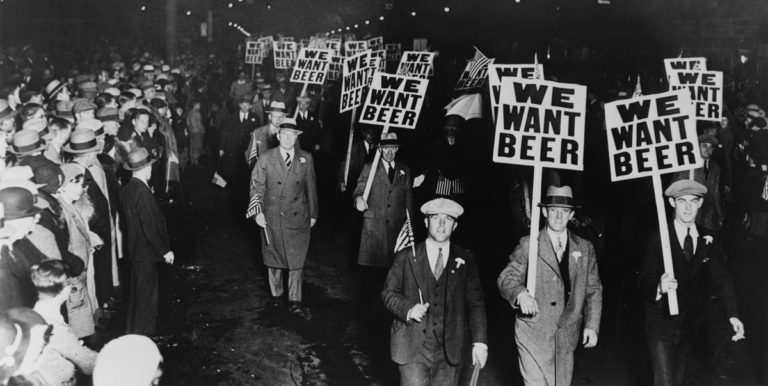The train was gone!
Thinking I had plenty of time, I had disembarked to buy a soft drink from a platform vendor. I waited in line, paid for my soda, turned around, and – my heart sank. The train that was to take Robin and me from Milan to Spain had left.
Robin was on the train, along with the two backpacks containing all our possessions. The woman I loved and hoped to marry was headed off without me! So was a book (as yet unread and hence unloved) tucked into one of the packs.
As luck would have it, I would soon be reunited with both the woman and the book. Together, they would change my life immeasurably for the better. Robin became my wife and the mother of our two wonderful sons; the book transformed my intellectual horizon and academic trajectory. At that moment on the platform, of course, I knew none of this.
Nowadays, a call or text between cellphones would have solved the problem. But this was 1971, when travelling students still picked up hardcopy letters at American Express offices.
Worse, even if I could somehow figure out where to find her among the several Spanish destinations and intermediate stops we were considering – we had to decided to “play it by ear” – my eurail pass was safely stowed in Robin’s money-belt. So were my passport and travellers cheques (remember those pre-ATM curiosities?). I stood on the platform with only the clothes on my back and perhaps enough change to buy a biscuit to go with the soft drink.
Panicking, I randomly approached people for help, using all the languages at my disposal — English, of course, but also my rusty childhood German, my rudimentary high school French, and the even more rudimentary Spanish I had picked up the previous summer at Ivan Illich’s left-wing centre in Cuernavaca Mexico. I neither spoke nor understood Italian.
Eventually a woman explained to me — in which language I cannot now remember — that the train had probably pulled out temporarily to change its departure track. She thought that might be it at the other end of the station.
I hustled over to find that the woman was right – and to be reunited with a tearful Robin, perched with our backpacks at a rail-car doorway, where she had been poised to jump off had the train not stopped and returned.
And so, our journey resumed. With stops in southern France, Robin and I made our way to Cullera, Spain, where I settled down to read the book.
Some background is needed to appreciate the story of the book. In the spring of 1971, Robin and I had both graduated from McMaster University’s department of sociology. There we had encountered Howard Brotz. Soon after receiving his PhD in sociology from the London School of Economics, Brotz had an epiphany when he chanced upon an essay by Leo Strauss. Concluding that he had been “translating banalities into jargon,” he quit his job in New York City and headed to Chicago to learn directly from Strauss. Later, he would come to McMaster, where his sociology courses focused on political philosophy.
Brotz seemed, by turns, to be an Aristotelian, a Lockean, a Rousseauan, a Marxist, a Nietzschean – always adopting the perspective of whichever thinker he happened to be teaching. I found it much easier to pin down the political perspectives of other professors in the department, and although I was interested enough in Brotz’s courses to take all of them, some charismatic leftists had a stronger immediate influence on me – which explains my post-graduation visit to the Illich centre in Cuernavaca.
Upon returning from Mexico, I decided to do graduate work at McMaster. I planned to write an MA thesis demonstrating the superiority of Marx to Aristotle on the issue of property, a topic influenced by both my leftist leanings and the philosophical interests I had picked up from Howard Brotz. Somewhat perversely, for both of us, Brotz agreed to supervise the thesis.
Robin had no intention of sticking around Hamilton. She had been saving for a year of travel and was itching to go. As I began graduate studies, Robin headed off to Europe, leaving me with plenty of spare time to campaign for Stephen Lewis’s NDP in that autumn’s Ontario elections.
Well, that didn’t last long. Lovesickness got the better of me, and by December, I had quit the graduate program and chased Robin to Milan. Howard Brotz did not try to dissuade me. He merely recommended that I take to Europe a book we had not yet read together: Plato’s Republic. “Get Allan Bloom’s translation,” he said, “it has a good interpretive essay.”
Smiling politely but noncommittally, I headed home, taking my usual route through the university’s bookstore, where – providentially – Bloom’s translation of the Republic immediately caught my eye. I bought it, slipped it into my backpack, and didn’t give it another thought until Robin and I rented a flat for a month in Cullera.
Must an epiphany occur in a blinding flash or can it develop slowly over the course of a month? The latter happened in my case. The sneering marginal notes near the beginning of my now dog-eared Republic show how little I thought of it initially. But such notes petered out as, thinking back on Brotz’s courses, I found dots starting to connect.
My youthful Marxist heart leapt when Socrates and his interlocutors concluded that a kind of communism was necessary to perfect justice, and that private interest must be overcome to achieve natural meritocracy. But they demanded a steep price. Communal childrearing could overcome the unjust advantages or disadvantages conferred by parents on their differently talented children, but only if the natural preference of parents for their own children could be disrupted. For example, mothers could not be allowed to recognize their biological offspring. Simply put, the biological family, a primary source of unjust private interest, had to be destroyed.
My skepticism was aroused, and, like the dialogue’s participants, I wondered how this remarkable state of affairs could actually come about. Only through lies, it turned out, both “noble” and otherwise. Moreover, when Socrates asked how these whoppers could be sold, Glaucon replied that they would persuade only children and subsequent generations, not current adults. Somewhat enigmatically, Socrates dropped the issue, but later in the dialogue he proposed getting rid of everyone over the age of ten in order to ensure the necessary socialization. Despite Socrates’s hilarious suggestion that the adults could be persuaded to decamp voluntarily, this proposal clearly anticipated the more serious purges of modern communism.
Purges and family destruction! Were these abhorrent features of modern communism the logical flip side of its idealism – my idealism? As I would later read in one of Strauss’ books, “the Republic conveys the broadest and deepest analysis of political idealism ever made.” Perhaps, I thought, some moderation – some realism – was in order.
My intellectual and political reorientation was underway – but barely underway. Knowing I still had much to learn, I applied for graduate studies in political science at the University of Toronto, where Allan Bloom had gone when Cornell University (his previous employer) caved to the demands of gun-toting student radicals in 1969.
I learned much from Bloom, who, among other things, encouraged me to bring the perspectives of political philosophy to the study of Canadian politics, as several former students of Strauss had done with American politics. A good example was Bloom’s friend Walter Berns, a fellow Cornell refugee at the University of Toronto. Also at Toronto was Peter Russell, who shared Berns’ interest in philosophic approaches to practical politics, especially constitutional politics. Russell ended up directing my Canadian-politics dissertation, with Berns serving on the supervisory committee. Bloom supervised my minor area: political philosophy. And I continued to see Howard Brotz, who lived in Toronto. Those were good years!
The title of my doctoral dissertation, In Defense of Liberal Democracy, says much about how my thinking had changed since the McMaster days. Here’s the unwieldy subtitle: An Inquiry into the Philosophical Premises Underlying French Canadian Liberalism’s Battle with Theocracy and Nationalism (Whew!). My study of liberalism’s battle with theocracy – the first half of the dissertation – turned me for practical purposes into a Laurier liberal, the kind of classical liberal who today counts as a conservative.
Even before completing the dissertation, I landed a job in the University of Calgary’s political science department, where I met Tom Flanagan, another classically liberal conservative. Three years later, Barry Cooper arrived, as did Ted Morton (who had also studied with Russell, Berns, and Bloom at the U of T). That made four conservatives. Four! In a single social science discipline not called “economics.” Nearly 20 percent of our department. Outrageous!
So outrageous – or at least noteworthy – that people began to pay attention. The Globe and Mail’s Jeffrey Simpson wrote a column about the “Calgary Mafia.” Others later softened that to the “Calgary School.” And the rest, as they say, is history – a history well told by Tom Flanagan in his essay “Legends of the Calgary School: Their Guns, Their Dogs, and the Women Who Love Them” (first published in a 2013 festschrift for Barry Cooper and now also available on the VoegelinView website).
Telling my own story makes me reflect on the role of chance in our lives. Encountering the right people, the right teachers, the right books, at the right time makes all the difference. Would life have turned out the same for me had that train continued on its way instead of returning to the station? I can’t help wondering.
~
A political scientist at the University of Calgary, Rainer Knopff has written widely on constitutional law and politics. His books include The Charter Revolution and the Court Party and Charter Politics (both with F.L. Morton).









